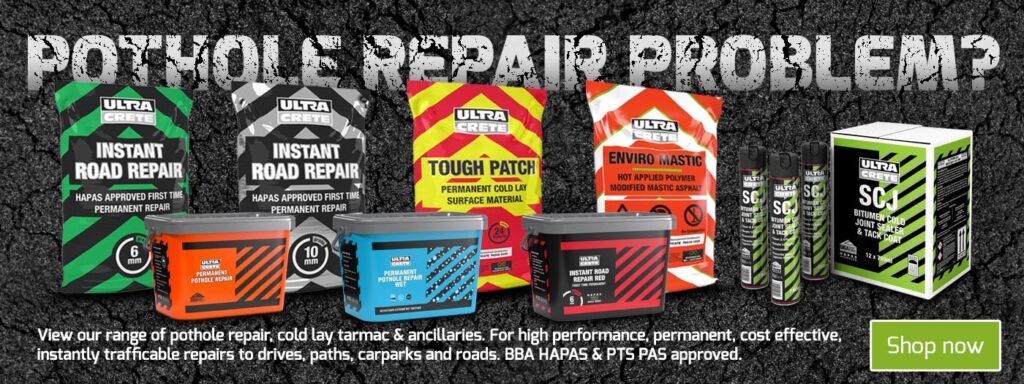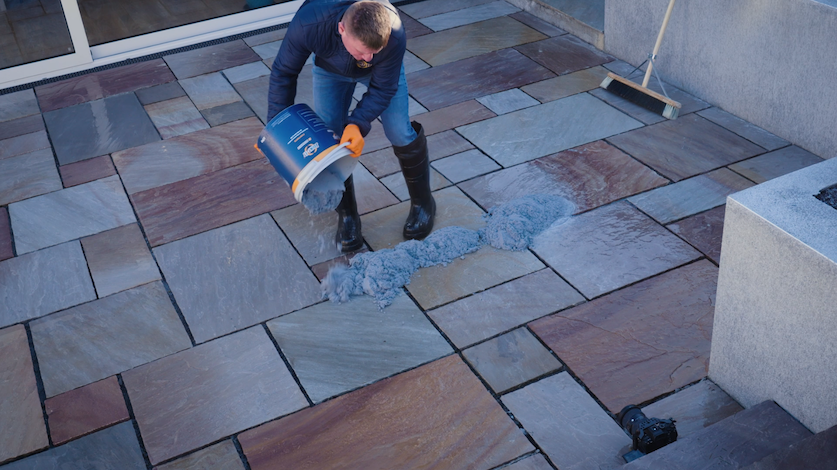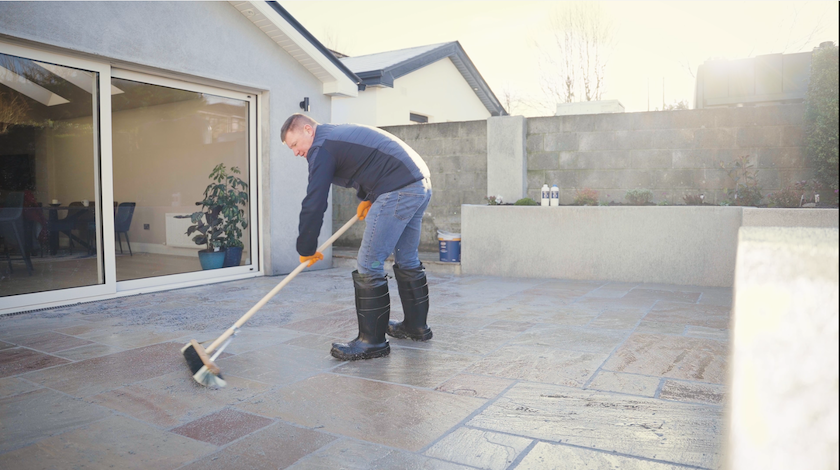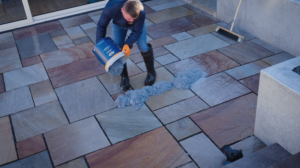Concerned that your pre-mixed batch of pothole repair mix has expired or ‘gone off’? Under certain conditions, especially cold spells, the formula can sometimes seem to harden. Discover what causes this and how to soften bagged asphalt that appears to have gone hard in the packaging.
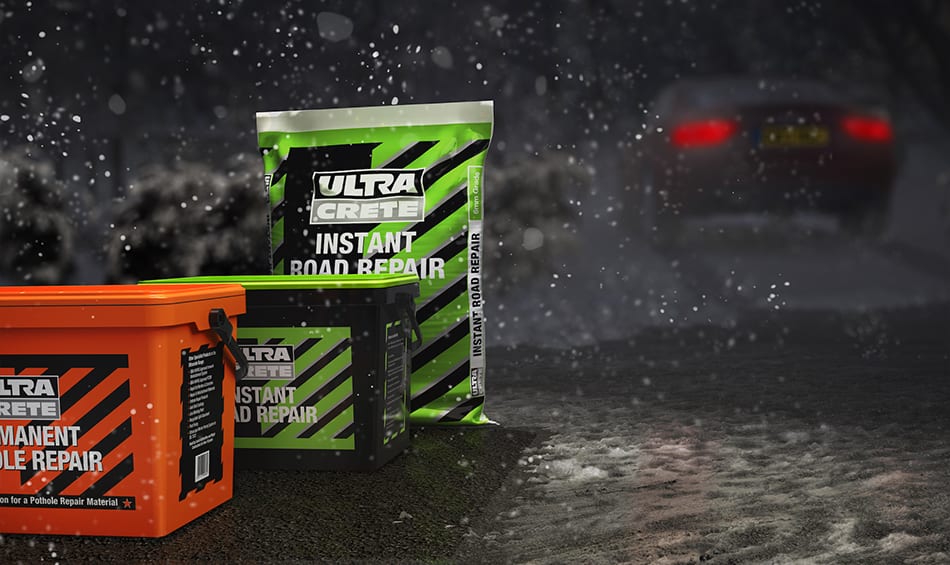
First, a bit about bagged asphalt
Also known as cold-lay tarmac, bagged asphalt is a revolutionary product for fixing potholes without the need for a hot-mastic mixer and all the heavy-duty equipment that these operations normally entail.
Made from a mix of bitumen, solvent and binder additive, most bagged asphalts are activated by compaction.
Once the mix has been added to the reinstatement, the formula will harden when it’s compacted using a wacker plate.
High-quality pothole repair mixes, like the range from the Ultracrete team at Instarmac, are freshly made and come with an expiry date of six months.
Formulas such as Permanent Pothole Repair, Instant Pothole Repair and Tough Patch contain high-grade materials to help you fix reinstatements permanently.
Has my bagged asphalt 'gone off' in the bag?
Especially during winter, it can be common to find that a bagged formula appears hard while still in its original packaging.
When this happens, you may find it difficult to manipulate the material or pour it into a reinstatement.
The good news is it’s very likely there is nothing wrong with the formula itself if the bagged asphalt is still within its expiry date.
What’s more, there’s a simple way to soften the formula so it can still be used.
Read on to find out how to remedy a hardened formula and get the most out of the mix.
What causes cold-lays to harden?
The most common cause of a ‘hardened’ bag of cold-lay mix is the weather.
Most cold-lay materials, like the range from Instarmac, do not contain any ingredients that will freeze.
Despite this, formulas that are exposed to cold temperatures do have a tendency to firm-up while in storage. The binder inside the formula hardens up due to the cold.
You’re likely to come across this problem when the bags have been exposed to cold winter temperatures.
Always follow the recommended storage instructions to protect materials from cold, damp and draughts (we cover the general storage tips for cold-lays later on).
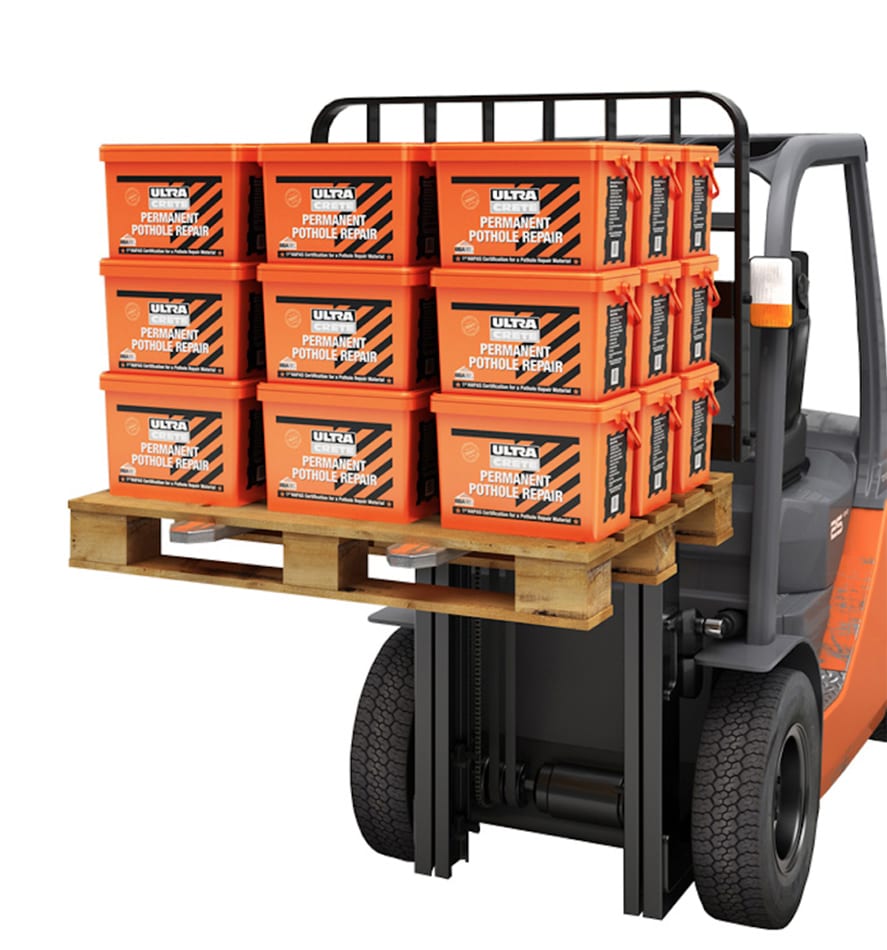
Another reason for a hardened bag of premixed asphalt is that it’s likely to have been at the bottom of a pallet.
The extra compaction that bag (or bags) may have experienced during transportation or storage can be enough for the materials to slightly harden.
Should I be concerned?
Even if the bagged asphalt material appears hard, it should not be a cause for concern. This is perfectly normal and doesn’t mean the material has passed its expiry.
As outlined above, a seemingly hardened bag of premixed asphalt can be due to a number of factors.
The bag merely needs a little manipulation to get the binder activated and soften the material.
Next we’ll move onto exactly how to soften an asphalt mix so it can be applied.
How do you soften a tarmac bag?
If you have a bag of ready-mixed asphalt that has ‘gone hard’, don’t worry – it’s a very common thing, and especially during cold weather.
In fact it’s likely the material hasn’t actually hardened and just requires a little manipulation.
Soften the mixture by simply applying a slight amount of pressure to the side of the bag. This will help to manipulate and free-up the binder so the repair mix can be applied.
The easiest way of applying this pressure is by rolling your knee on the side of the bag.
Once the binder warms-up, the formula will return to be a nice and pliable mixture that can be easily poured and applied.
Consider exposing the bag to direct sunlight
Another way of softening an unopened bag of hardened cold-lay asphalt is to expose the package to direct sunlight.
One or two hours of direct sunlight should do the trick. A temperature of above 10ºC will be enough to get the formula malleable and moving.
However, Ultracrete still recommends manipulating the bag yourself to improve the workability of the mix.
Bulk Buy Deals
Other ways of softening bagged asphalt
Although we recommend the simple method mentioned above to soften bagged asphalt (of using pressure from your knee to soften the mixture), there are other methods you could consider.
You could use a blowtorch to heat-up cold-lay surfacing materials that have hardened. The extra heat will help to break-down the binding agent.
However, this method comes with risks. Too much heat will bruise the aggregate. You must take care not to burn the tarmac – only warm it up.
Another method is to add a cutting agent, such as kerosene, to make the material easier to work with.
As Ultracrete’s range consists of tried and tested formulas under SROH, we don’t recommend adjusting this formula.
Dave Youell from Ultracrete says, “This firming of the mixture can be very easily remedied by applying slight pressure to the side of the bag.
“By manipulating and moving the mixture, you are able to easily free-up the binder in the bags and tubs so it can be applied instantly.”
What if the mix is in a tub or bucket?
Some ready-made formulas are packed in tubs or buckets. The extra packaging can offer a bit more protection to the formula making it less likely to harden during storage or transportation.
Saying that, hardening of cold-lay asphalt in tubs can still occur.
If a tub of cold-lay mix has hardened while in storage, simply remove the mix from the packaging and apply gentle pressure using your knee. Use a protective sheet or plastic bag around the mix to avoid it staining or damaging your clothes or any surfaces.
Best weather conditions for applying bagged asphalt
Bagged asphalt can be applied during all weather conditions apart from frost. Regardless of the formula, if the ground is frozen it is strongly advised not to apply cold-lay tarmac.
Dave shares, “There is no minimum temperature to apply our range of cold lay tarmac products as there is nothing in the material that freezes.
“All of Instarmac’s range of cold lays can be used during cold temperatures.”
But to be on the safe side, Dave advises not to fix potholes when the temperature is close to freezing. “In best practice, the ground must be frost-free for patching potholes.
“If a pothole is patched on top of frost, then freeze thaw can take place. This causes water particles to expand, pushing the material back out of the reinstatement.”
Keeping an eye on the outdoor temperature is important during surfacing operations. Always bear in mind that the ground temperature will be a few degrees colder than what your weather app says.
So you’re not caught out by frost on the ground, it may be worth moving your repair job to later in the day when the temperature is slightly warmer.
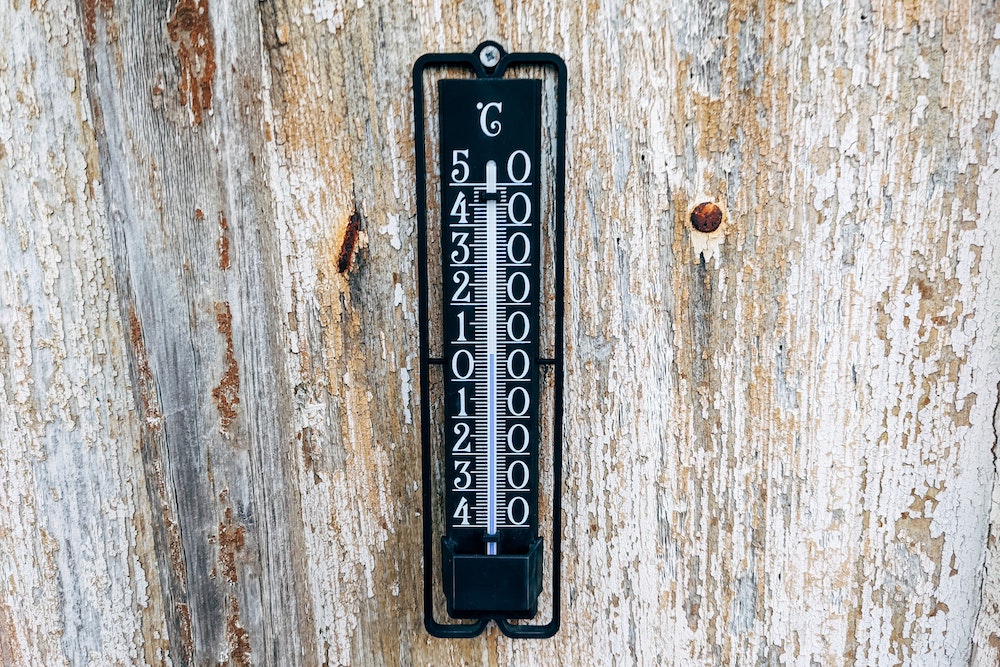
What about bagged hot-lay formulas?
Another option during colder weather is to use a hot-lay mix.
As a ready-mixed macadam, Enviro Mastic can be heated using a mastic mixer and applied as a hot-lay formula. As such, the formula can easily be utilised at remote sites and any leftovers can be stored and heated for another time.
However, you still need to ensure the ground is frost-free when applying Enviro Mastic – or, for that matter, any type of cold or hot asphalt.
“Again there is no minimum temperature for applying Enviro Mastic, which is the same for all hot-lay mixtures,” says Dave. “Just keep in mind that ideally the ground should be frost-free.”
Allow for extra curing time
Asphalt takes longer to cure during cold weather. So allow some extra time for formulas to properly set.
You can always opt for a rapid-setting formula so you don’t need to allow for extra curing time.
Mixes like Permanent Pothole Repair and Instant Road Repair (available in 10mm and 6mm grade) from the Ultracrete range set instantly!
If you’re using a hot-lay mix like Enviro Mastic, allow about 1 hour for it to cure during cold weather (normally 45 minutes on a hot day).
Choose a formula with improved workability
If you are still concerned about bagged asphalt hardening, choose a formula with improved workability. These formulas are less likely to appear hardened in the bag.
A great option for not only workability but also a superior formula with added skid resistance is Tough Patch.
Tough Patch (available with either a 6mm or 10mm grade aggregate) is a water-activated surfacing material that contains an innovative reactive binder that is rapid curing and delivers permanent pothole repairs.
The robust formula is activated when sprinkling water on top before compaction. Highly skid and rut resistant, Tough Patch offers a high level of polished stone value (PSV) making it the ideal choice for repairing potholes in heavily trafficked areas or on junctions and turning circles.
As a water-activated formula, Tough Patch can be applied in the rain (just add less water before compaction!). It comes fully PAS approved and is manufactured in line with SROH.
Storage recommendations for bagged asphalt
Always follow the manufacturer’s instructions when it comes to storing unopened bags of ready-mixed asphalt – and especially during the winter months.
Ensure any bags or tubs are stored in a cool and well-ventilated area. Ideally, they should be elevated off the ground on a pallet or shelving. The area must be free from drafts and frost.
Ultracrete’s surfacing materials are all freshly made and come with a six-month use-by-date. Ensure you keep an eye on the dates and use the products within the stated time frame.

